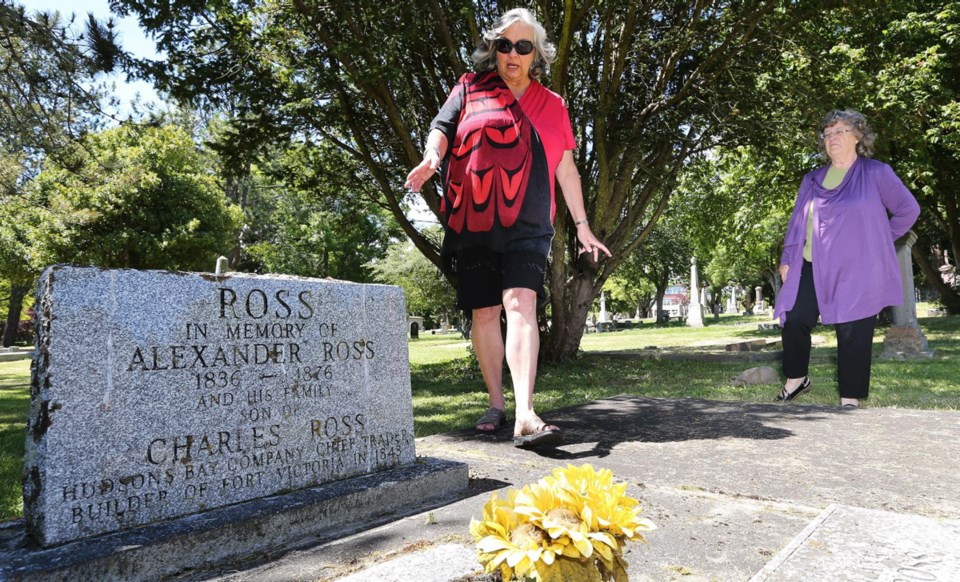The surname Ross carries a special history in Victoria, marked by features such as Ross Bay and its adjacent cemetery.
But according to Fern Perkins, a local historian and member of the Old Cemeteries Society, Hudson’s Bay Co. trader Charles George Ross receives credit for the name all too often.
Perkins says the naming of the bay and the cemetery is better traced to Ross’s wife, Isabella, a Métis woman who was from a region near Winnipeg.
It was Isabella who put the name Ross on the official records and she did it years after Charles died in 1844, Perkins said this week.
“Isabella [who died in 1885] was lost in the shuffle because her husband died and she was forgotten by her own people,” Perkins said.
Perkins, 63, who is a great-great-granddaughter of Charles and Isabella, will be helping lead a tour of Ross Bay Cemetery on Sunday. She will do it in historical costume portraying Isabella.
Also included is the unveiling of a new marker for Isabella’s gravesite.
Charles Ross was a Scottish-born fur trader who died in Fort Victoria one year after its 1843 founding. He was buried in what is now Pioneer Square.
After his death, Isabella and their children left Victoria and headed south to work a farm near what is now Tacoma, Wash.
Isabella earned enough money to return to Victoria in 1852 and buy 100 acres along Ross Bay, up to Harling Point. It became known as Ross Farm.
With that purchase, she established a number of firsts: She became the first woman and the first aboriginal person to be registered as a land owner in B.C. under its colonial rules.
Her purchase also ensured the name Ross would take a place among other familiar pioneer family names in Victoria, such as Douglas, McNeill and Finlayson.
From her research, Perkins has gained enormous respect for Isabella.
She was a woman who couldn’t read or write English, spoke Ojibway, French and probably Chinook, the pidgin language developed by fur traders.
She farmed, traded, travelled across Canada and gave birth to 10 children, all of whom reached adulthood.
At one point, she even fought off some raiding native men with a pike to defend her children, Perkins said. Afterward, aboriginal people were quoted as saying the white men must be very strong indeed to have such women, she said.
“She was obviously a very strong woman of great courage,” Perkins said.
The Ross Bay Cemetery tour begins at 2 p.m. Sunday. Meet at Oregano’s Bistro, 1-1516 Fairfield Rd. Tour fees are $2 for members of the Old Cemeteries Society; $5 for non-members.
